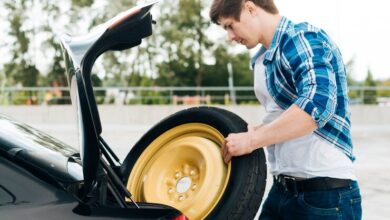https://guia-automovil.com/2019/07/31/autos-clasicos

Introduction to Classic Cars
Classic cars have always held a special place in the hearts of automotive enthusiasts. From their unique designs to their rich histories, these vehicles embody a bygone era of innovation and craftsmanship. In this post, we’ll explore the enduring appeal of classic cars, offer tips on maintenance, and discuss the future of these beloved vehicles.
A Brief History of Classic Cars
The automotive world has evolved rapidly since the first cars hit the road in the late 19th century. However, some models have stood the test of time, capturing the imagination of generations. Classic cars are typically defined as those that are over 25 years old and have historical or nostalgic value. These vehicles often feature distinctive design elements and engineering feats that set them apart from their modern counterparts.
In the early 20th century, mass production methods revolutionized the auto industry, making cars more accessible to the general public. Iconic models such as the Ford Model T and the Chevrolet Bel Air paved the way for future classics. Over the decades, automotive design continued to evolve, giving rise to legendary vehicles like the Mustang Boss 429 and Plymouth Barracuda, which remain cherished by collectors today.
The Appeal of Classic Cars
There’s something undeniably captivating about classic cars. For many enthusiasts, these vehicles represent more than just a mode of transportation; they are symbols of style, freedom, and individuality. The unique design language and attention to detail found in classic cars are often lacking in contemporary models, making them all the more appealing to collectors.
In addition to their aesthetic appeal, classic cars are coveted for their historical significance. Each vehicle tells a story, offering a glimpse into the past and serving as a testament to the automotive innovations of its time. For those who appreciate history and craftsmanship, owning a classic car is akin to possessing a piece of art.
The sense of nostalgia that classic cars evoke is another reason why they hold such allure. For many, these vehicles bring back fond memories of a simpler time, when cars were designed to be driven and enjoyed rather than simply as utilitarian machines.
Classic Car Maintenance
Maintaining a classic car can be both a rewarding and challenging endeavor. Proper care is essential to preserve the vehicle’s value and ensure it remains in peak condition. Here are some tips to help you keep your classic car running smoothly:
- Regular Maintenance: Like any vehicle, classic cars require routine maintenance to stay in top shape. Regularly check fluid levels, brake systems, and tire pressure to prevent potential issues. Additionally, invest in high-quality oils and lubricants to protect your car’s engine and components.
- Protect from the Elements: Exposure to harsh weather conditions can wreak havoc on a classic car’s exterior and interior. To protect your investment, store your vehicle in a climate-controlled environment, and use a quality car cover when not in use. Regularly wash and wax the exterior to maintain its shine and protect the paint from fading.
- Periodical Inspections: Schedule regular inspections with a trusted mechanic who specializes in classic cars. They can identify potential issues before they become major problems and advise you on necessary repairs or upgrades.
Where to Find Classic Cars
For those looking to buy, sell, or simply admire classic cars, there are numerous avenues to explore. Auctions, both online and in-person, are popular venues for acquiring classic vehicles. Renowned auction houses like Barrett-Jackson and Mecum Auctions frequently host events featuring rare and sought-after models.
Car shows and museums offer another opportunity to view classic cars up close. Events like the Pebble Beach Concours d’Elegance and Amelia Island Concours Week showcase some of the finest examples of automotive history. Additionally, many museums, such as the Petersen Automotive Museum and the Henry Ford Museum, boast impressive collections of classic cars.
Online classifieds and enthusiast forums also provide a platform for buying and selling classic cars. Websites like Hemmings and ClassicCars.com feature extensive listings of vehicles for sale, while community forums offer valuable resources and advice from fellow collectors.
The Future of Classic Cars
As the automotive industry continues to evolve, the role of classic cars in this landscape remains a topic of interest. While advancements in technology and the push towards electrification may seem at odds with the world of classic cars, there is potential for these vehicles to coexist with modern innovations.
One potential avenue for preserving classic cars is the conversion of traditional engines to electric powertrains. Companies like EV West and Electric GT offer conversion kits that allow enthusiasts to enjoy the charm of their classic cars while benefiting from the performance and efficiency of electric power.
The market for classic cars is also likely to remain strong, as interest in these vehicles shows no signs of waning. The appeal of classic cars transcends generations, with younger enthusiasts increasingly drawn to the unique design and history they represent.
Conclusion
Classic cars are more than just vehicles; they are a testament to the creativity and ingenuity of the past. Their timeless allure continues to captivate enthusiasts and collectors alike, offering a connection to a rich history of automotive innovation. By maintaining and preserving these vehicles, we honor their legacy and ensure they remain a cherished part of our cultural heritage.




